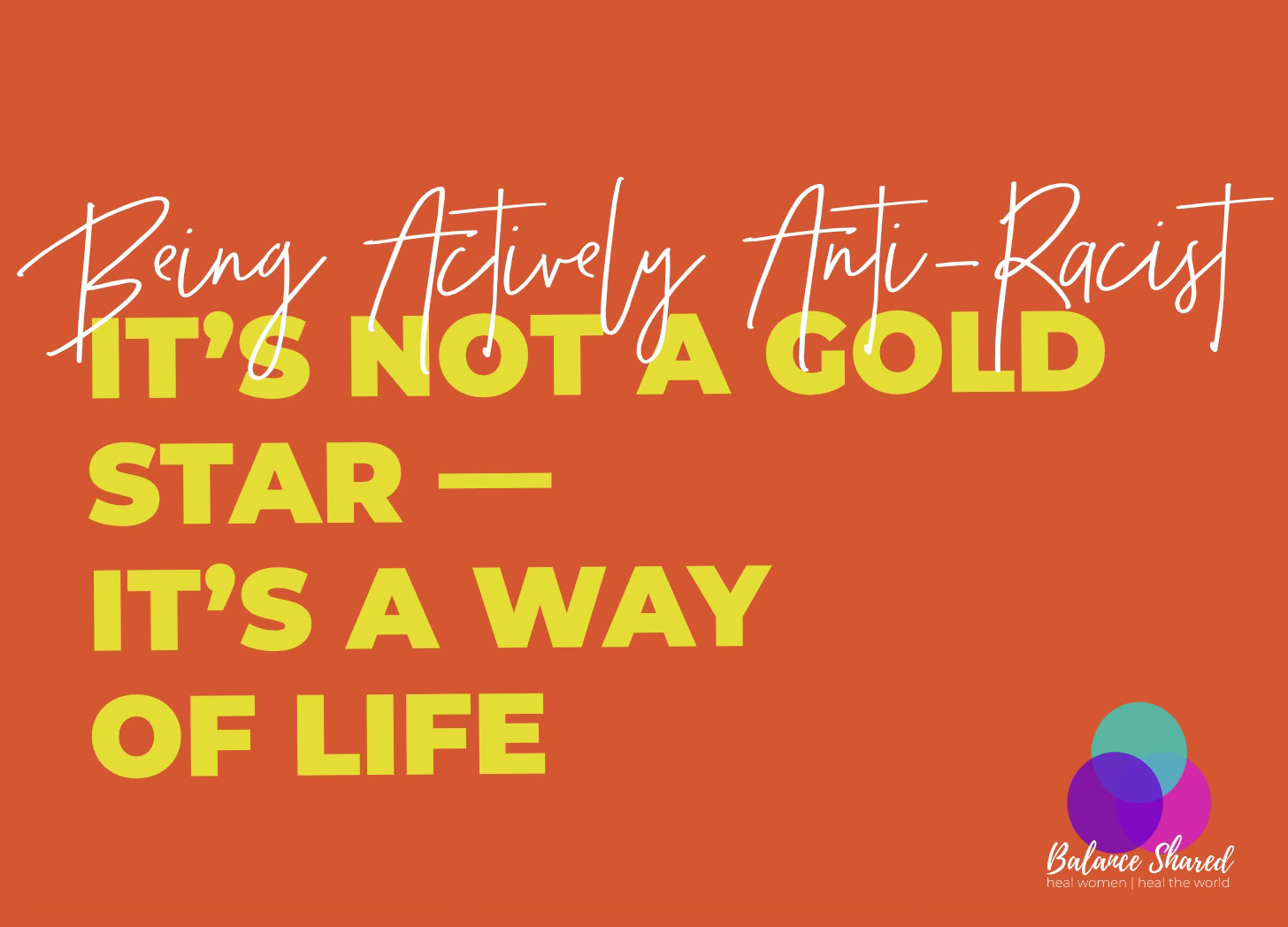Being Actively Anti-Racist: It’s Not a Gold Star — It’s a Way of Life
From hotline calls to parenting to protests — I’ve learned that silence is never neutral.
My friend said to me, “Michelle,” in her authoritative tone, “language is fluid.” I paused. We had been discussing a word, maybe it was regardless vs irregardless, and she simply named how things evolve, and even language evolves like we do.1 And, that got me thinking about Maya Angelou, who, among many things, said, “When you know better, do better.” The way we say things matters. And, it evolves. When I was in high school, in the 90s, we talked about “transsexual” people, now we say things like “transgender” and “genderfluid”, and we’ve added things into our introductions, like, “What pronouns do you use?” We have evolved to meet the needs of now. We have evolved to be more open, addressing oppression and striving to use language more accurately. We have evolved from interrupting oppression to being actively anti-racist, and that is important, and it matters.
We talked a lot about labels in my senior year sociology class. For instance, what happens when a child is labeled a “bad kid”? Suddenly, you stop looking for other patterns and just chalk up behaviors to the “bad kid.” It becomes, in this instance, a self-perpetuating loop where the kid doesn’t get the benefit of the doubt. Labels frame what is possible - or how we limit ourselves. When we look at a person or a group and label them “lazy” or “criminals”, we limit our hope for what is possible. We fail to see people as individuals with choices and opportunities. And, it’s important to interrupt when people label groups through their biases. So, we interrupt it. I’ve been coached to say things like, “Ouch,” in the moment, as a quick way to stop the bigotry from continuing. Interrupting oppression was taught to me by a local non-profit through our community hotline work. They learned it from other groups and movement spaces. The disruption offered reflection and opened space for crucial conversations. But, it didn’t always point to the next phase - in part because, in this instance, we were on a hotline call.
I presume, dear reader, that you have been taught modern history. In modern history, we learn that women fought for the right to vote and secured it in 1920. But Black people’s and other minorities’ rights weren’t granted until 1965. If you are a white male or white woman, and you cannot see that rights have been tiered, hard fought, and barely granted within my lifetime, you are choosing to bury your head in the sand. This is systemic racism at play. The Voting Rights Act was passed in 1965. It immediately had to be defended and expanded. And, if you fail to acknowledge that, then you are choosing to uphold the systemic racism that brought us here. You, then, are a part of the problem. And, I need you to step into a life of being actively anti-racist.




